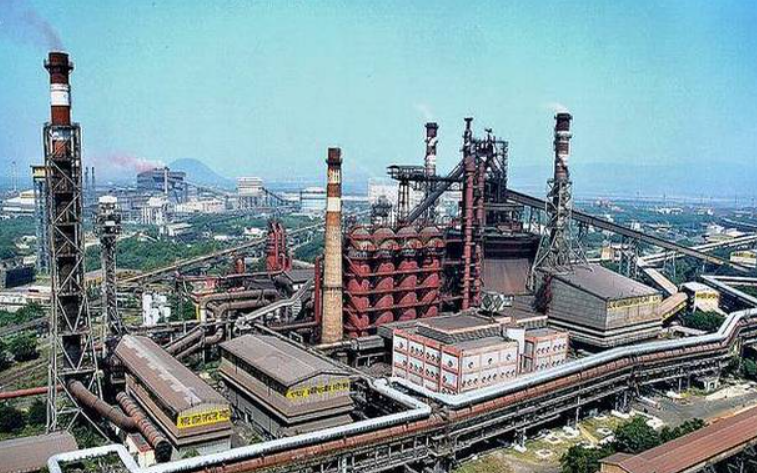India–US Trade Tensions Rise Over Steel and Auto Tariffs NMDC Limited reports a 38% drop in Q4 FY24 consolidated net profit RINL to Raise $23 Million Through Land Sales Amid Crisis

The debt-to-equity ratio of the state-owned steel manufacturer Rashtriya Ispat Nigam Ltd (RINL) increased tenfold to 52.29%, while the company’s net debt skyrocketed to over ₹20,400 crore in FY23, up 20% year over year. The company’s ability to operate as a “going concern” has drawn criticism from independent auditors, who have also stated that the organisation “is facing cash-flow problems.”
A high debt-to-equity ratio indicates a leveraged firm and stress on finances.
According to the auditor’s report, assumptions made by RINL depend on “many major factors” - demand for its products in a competitive market, quantity of sales, realisable prices, raw material availability and index price fluctuations – most of which “are beyond the control of the company”.
“...therefore indicate that a material uncertainty exists,” the report said, adding a standalone cash loss of ₹1,987.79 crore. Negative cash flow from operating activities is ₹838.54 crore. RINL’s accumulated losses stood at ₹7,436.08 crore as of March 31, 2023.
Current liabilities exceeded assets by ₹13,725.67 crore as of March 31, 2023.
As per the company’s Annual Report, the net debt was ₹17,187 crore in the year-ago period (FY22), while the debt-equity ratio was just 5.41. In a year, the debt-equity ratio surged 866 per cent, caused by increased borrowings and stress on earnings.
Claims against the company, which are not considered a debt, were at ₹4,559 crore for FY23, up three per cent Y-o-Y.
The company, under the Ministry of Steel and the second largest PSU steel-maker after SAIL, saw its adjusted equity fall to ₹341 crore in FY23. The year-ago adjusted equity was ₹3,175 crore.
“Increase in borrowings and reduction in shareholders equity as compared to the previous period (was) due to the net loss for the period,” the management said in its commentary. Net loss for the period was ₹2,859 crore. The steel maker had a profit of ₹913 crore in FY22.
The debt servicing capacity of the company also went down significantly as earnings dipped. The debt servicing coverage ratio (dependent on earnings), which previously stood at around ₹3,000–₹4,000 crore-odd annually, was down to just ₹83 crore.
“Negative earnings resulted in unfavourable debt service coverage ratio,” the management wrote in its explanation.
Unfavourable market conditions, including the energy crisis’s adverse impact and the continued Russia-Ukraine war, saw the company operate with two blast furnaces (with the third remaining idle/unused). The production from the two Blast Furnaces had to be restricted based on the availability of imported coking coals & PCI coal for injection.
“With improvement in production levels and with improvement in market conditions, RINL had returned to cash profits in the last quarter (Jan–Mar),” it said in the Annual Report, adding that “for the year as a whole, the performance remained sub-optimal”.
Estimates for FY24
RINL’s top brass expects a gross sales turnover of ₹35,857 crore for FY24, as against the actual turnover of ₹22,778 crore for FY23, banking primarily on higher capacity utilisation. The management also expects to generate positive cash flows from operations during FY24.
The company’s management claimed that it has a track record of debt servicing without default and hence believes it has “the ability to continue as a going concern”.
Atul Bhatt, Chairman and Managing Director, RINL, during a January 1 address to employees, said technical bottlenecks, financial issues and working capital issues were being worked on, and a debt reduction strategy was being looked into. The CPSE is also looking at ways to ensure raw material linkages. RINL continues to be among the only steel makers in the country not to have captive iron ore and coal mines.
For the nine months (April–Dec) of this fiscal, the steel-maker reported ₹16,776 crore worth of sales, up 21% in volumes. Value-added steel sales increased by 47% Y-o-Y.
Also Read : India Unveils $24 Billion CCUS Investment in Budget 2026-27 Amitava Baksi Appointed Steel Sector Ambassador at Achilles Information Limited